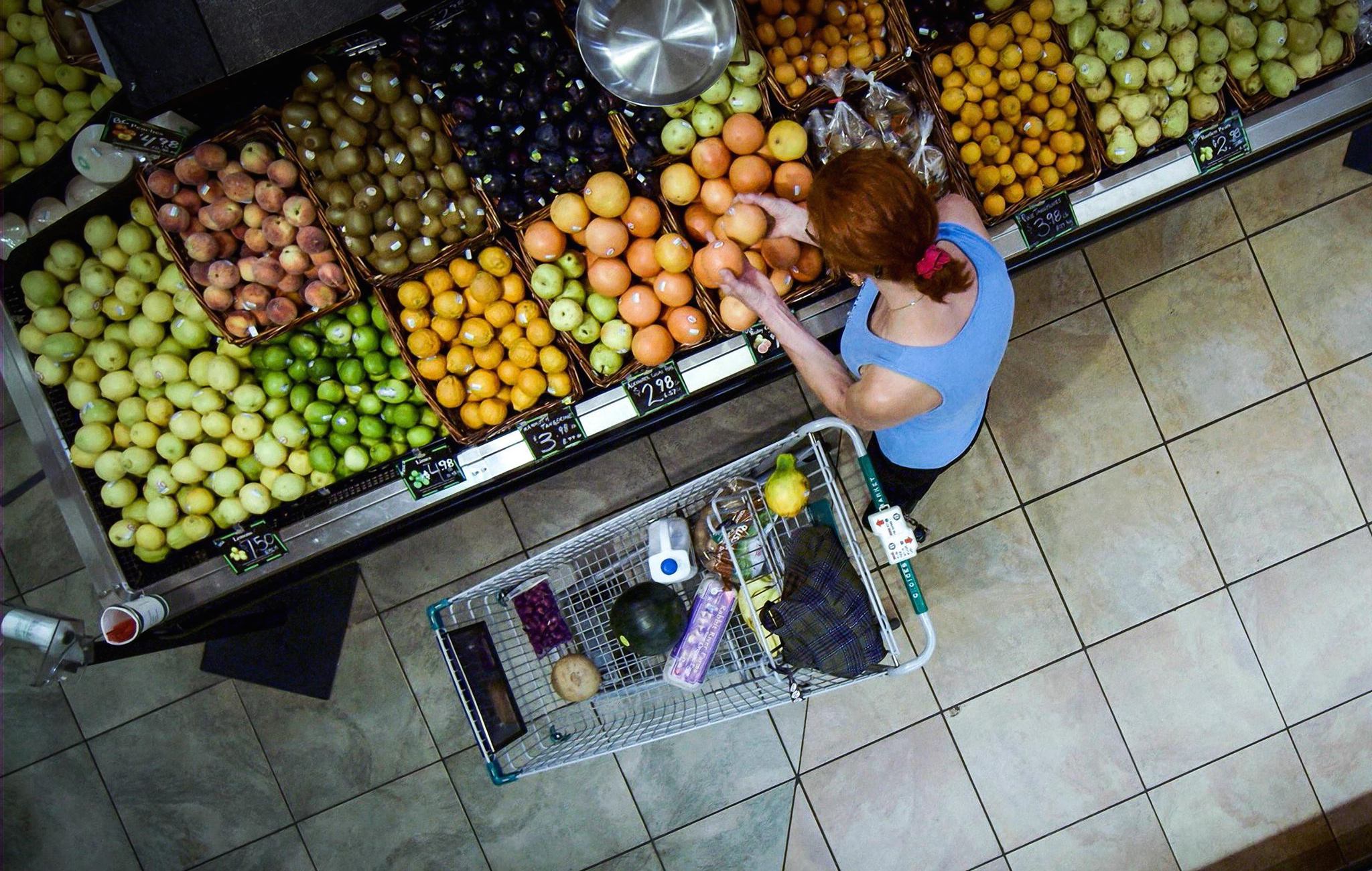
Last night, some of MSNBC’s star pundits joined with food celebrities, including chef Dan Barber and former Let’s Move! campaign executive director and White House assistant chef Sam Kass, to watch an advance screening of the network’s shocking new documentary on food waste.
When filmmakers Jen Rustemeyer and Grant Baldwin heard that more than 40 percent of the food produced in the United States was thrown away, they looked at their own purchasing habits and decided to embark on an experiment: live six months eating only discarded food.
The couple employed many techniques, including raiding their friends’ refrigerators and cupboards for unwanted food, buying end-of-day vegetables from local farmers markets and dumpster diving. They claim they ate well, with Grant even gaining 10 pounds over the course of the project. (And truthfully, looking at the meals he dutifully photographed, the food looked pretty good.)
Initially, the Canadian pair wanted to point the finger at food producers, restaurants and grocery stores — and for good reason given one of the most startling images from the film: a huge grocery store dumpster completely filled with tubs of perfectly good hummus that still had three weeks left until the use-by date.
Yet Jen and Grant discovered that most food waste happens at home. When you hear the statistic that between 15 and 25 percent of the food we buy is thrown out, you have to be honest with yourself; you can’t help remembering that bunch of yellowed kale you ended up tossing into the garbage when you had to work late every night and were too tired to wash, chop and cook it. “Imagine walking out of a grocery store with four bags of groceries, dropping one in the parking lot and just not bothering to pick it up,” said Dana Gunders, a staff scientist with the National Resources Defense Council. “That’s essentially what we’re doing in our homes today.”
Portion sizes are out of control the film argues, and with the advent of the “foodie” culture, people who can afford it often buy more than they can use. Think about that last time you got excited by the picture-perfect produce at your local market and your unrealistic expectations about the time, energy or interest you’d have for cooking it (a big problem here in New York City, where the unmotivated home cook can have food from around the world delivered to them within a half hour).
At the Q&A after the screening, star chef and new MSNBC food correspondent Tom Colicchio pointed out that while the amount of food waste is stunning, 47 million hungry Americans still don’t have consistent access to the healthy food they need. Can recovering hundreds of billions of dollars of trashed food solve the problem? Should struggling families be dumpster diving? The panel, composed of the filmmakers, chefs, experts and Obama’s chief of food recovery answered with a resounding “No.” Eliminating food waste would provide a vital boost to the environment, but, the experts pointed out, solving hunger would require a systematic approach including higher wages and an adequate government food safety net.
How can you do your part? The filmmakers encourage you to start by looking in your own refrigerator: Eat what’s there, don’t overbuy, and purchase “ugly” produce. Save your food scraps and take them to the farmers market (or wherever) for composting. And when you eat out, ask for a doggie bag.
The award-winning documentary will air tomorrow night at 10:00 p.m. EST. For more information, you can check out their website.



